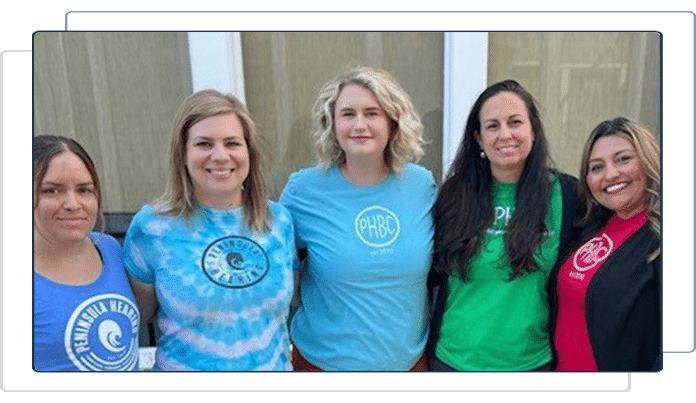
Welcome to Peninsula Hearing & Balance Center

Why Choose Peninsula Hearing & Balance Center?
Peninsula Hearing & Balance Center is a locally owned, private audiology practice. Because we are an independent practice, we have the ability to work with any of the major hearing aid manufacturers, allowing us to provide each patient with the best option for them. Our team consists of Doctors of Audiology who are dedicated to your well-being and hearing health. Whether you need help with hearing loss, tinnitus, balance disorders, or another hearing disorder, we are here for you.
We have three convenient locations in Coronado, Point Loma, and Rancho Bernardo to better provide the people of our communities with hearing healthcare.
What to Expect at Your First Appointment
To begin your appointment, we will have a conversation to get to know you better. Our goal is to make you feel comfortable and educated about your hearing health. We will ask you some questions to better understand your hearing ability, health history, and what your goals are.
After our conversation then we will perform an ear exam by looking inside your ears at the ear canal and eardrum. If you have impacted earwax that is causing your hearing difficulties, we can remove that in office.
Once we’ve ensured your ears are clear, then we will begin the hearing test. We will assess how well you can hear words at various volumes and in noise and quiet.
After the hearing test we will go over the results of your audiogram and answer any questions you may have. If you could be helped by hearing aids, we will recommend a device that matches your unique needs.

Preferred Provider of the NFL Players Association
Peninsula Hearing & Balance Center is a preferred hearing care provider for the NFL Players Association’s Professional Athletes Foundation. Through this partnership, the PAF aims to bring better hearing to former professional athletes and their fans across the nation. Together, we spread awareness, help players in need of hearing care, and collected data on the connection between hearing loss and professional football.


